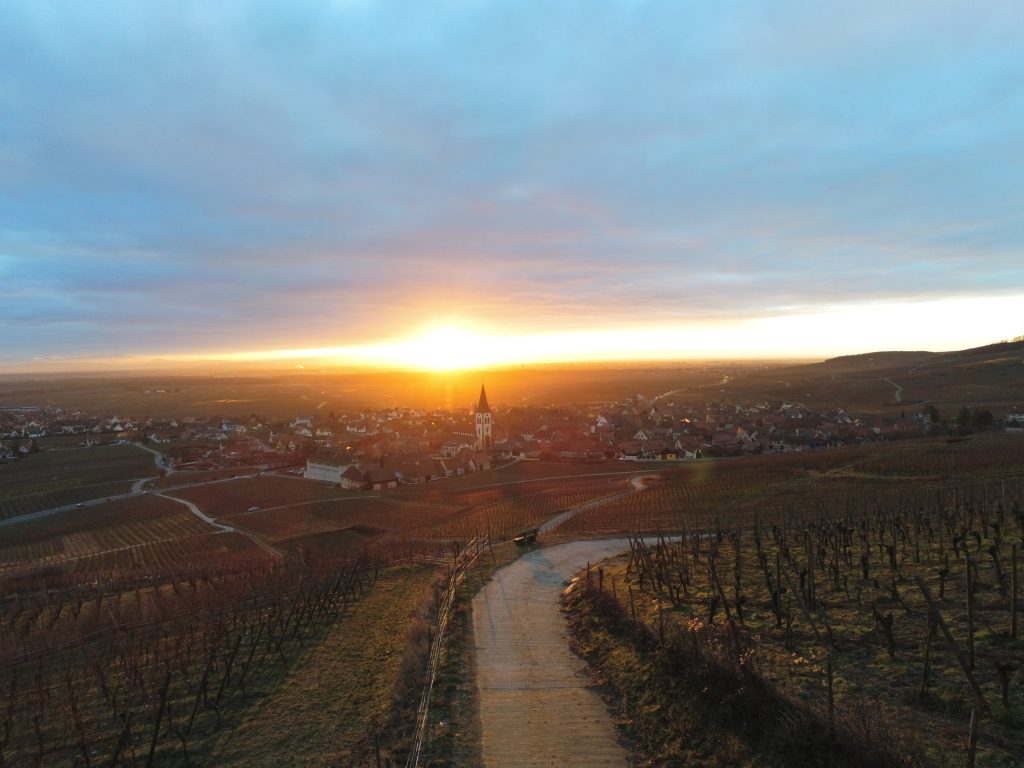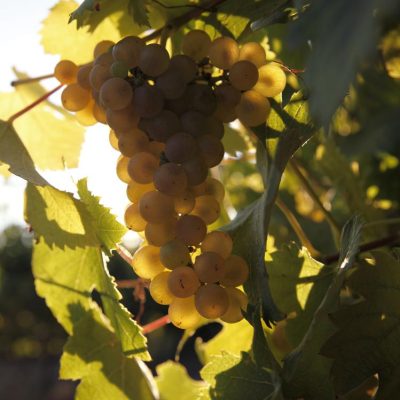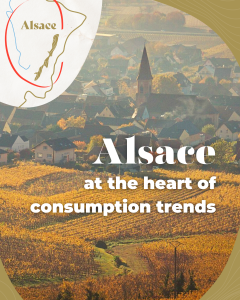Alsace stretches out in a mosaic of terroirs, surrounded by the slopes of the Vosges and the plains of Burgundy. Today, it stands out thanks to its unique characteristics within the international wine world.
Alsace is booming!
Let’s delve into what makes Alsatian grape varieties essential and why Alsace wines are becoming increasingly trendy.

Native Alsatian grape varieties

Alsace’s wines are renowned for their tradition of single-varietal winemaking, a practice distinguished by the mention of the grape variety on the label of each bottle. This approach allows each grape variety to fully reveal its distinct characteristics, providing a tasting experience where the influence of the terroir on the aromatic expression of the grape is palpable.
Alsace enjoys international acclaim for its superb white wines, crafted exclusively from native grape varieties such as Riesling, which offers unparalleled mineral freshness, and Gewurztraminer, recognizable by its enchanting notes of rose and lychee. Pinot Gris, formerly known as Tokay, and Pinot Blanc delight palates with their flavorful and aromatic wines, while Sylvaner stands out with its finely crafted wine creations that whet the appetite of wine enthusiasts.
In line with current consumption trends
Wine trends are constantly evolving, and Alsace stands out for its remarkable ability to adapt to the changing preferences of modern wine enthusiasts. As more and more consumers seek authentic wines crafted through sustainable and nature-friendly production methods, Alsace winemakers have wholeheartedly embraced organic and biodynamic viticulture to meet this growing demand.
Furthermore, Alsace shines brightly in the current trend toward dry and off-dry wines. This wine region excels in the subtle art of producing dry and off-dry wines, offering a refreshing alternative to the excessive sweetness sometimes found in other wines. Alsace wines embody the perfect balance between character and refinement, captivating even the most discerning palates.

Innovative winegrowers who respect their terroir
Alsace’s winemakers are known for their innovative and terroir-respecting approach, especially since the 1960s. They work in harmony with nature to produce wines that truly reflect the region’s identity. Many Alsace vineyards are family-owned, passing down the art of viticulture from generation to generation.
The domaine Wunsch & Mann is an example of the remarkable quality of Alsace wines. Located in Wettolsheim, just 5km from Colmar, one of the cradles of the Alsace vineyard and today one of the most important wine villages in Alsace, it enjoys an exceptional location between the Three Castles of Eguisheim and the Hohlandsbourg Castle. The family-owned estate produces a wide selection of wines, all in organic farming, ranging from traditional Gewurztraminer and Riesling to the grand crus of Steingrubler and Hengst.


Alsace winemakers are also open to experimentation, constantly seeking to improve their winemaking techniques. This results in a diversity of wine styles, ranging from fresh and mineral wines to rich and opulent ones
The domaine Maurice Schoech, is located in Ammerschwihr, in the northwest of Colmar, and boasts a rich family history spanning several centuries. Since 2014, it has wholeheartedly embraced organic farming on its 18 hectares of vineyards. It combines traditional methods with a modern and creative approach to oenological experimentation. The estate offers a diverse range of grape varieties such as Gewurztraminer and Riesling, as well as Pinot Gris, Pinot Blanc, and Pinot Noir.
In conclusion, Alsace stands out with its renowned grape varieties, its ability to follow current wine market trends, and its commitment to sustainable viticultural practices. It’s this combination of factors that makes Alsace vineyards essential and increasingly trendy. So, explore the world of Alsace wines and let yourself be charmed by their unique allure and exceptional quality
En Alsace, quatre cépages sont considérés comme « nobles ». Il s’agit du Riesling, du Gewurztraminer, du Pinot Gris et du Muscat
Les vins alsaciens se distinguent par leur fraîcheur, leur minéralité et leur grande diversité de cépages.
Les vignerons alsaciens préservent la fraîcheur de leurs vins en pratiquant une viticulture respectueuse de l’environnement et en choisissant avec soin le moment de la récolte.



